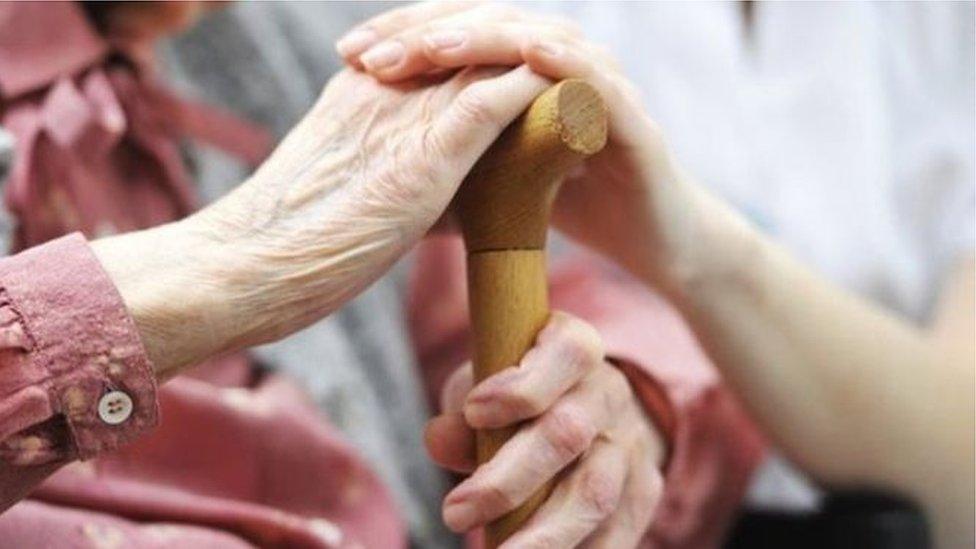Coronavirus: Derry and Strabane infection rate falls by 70%
- Published
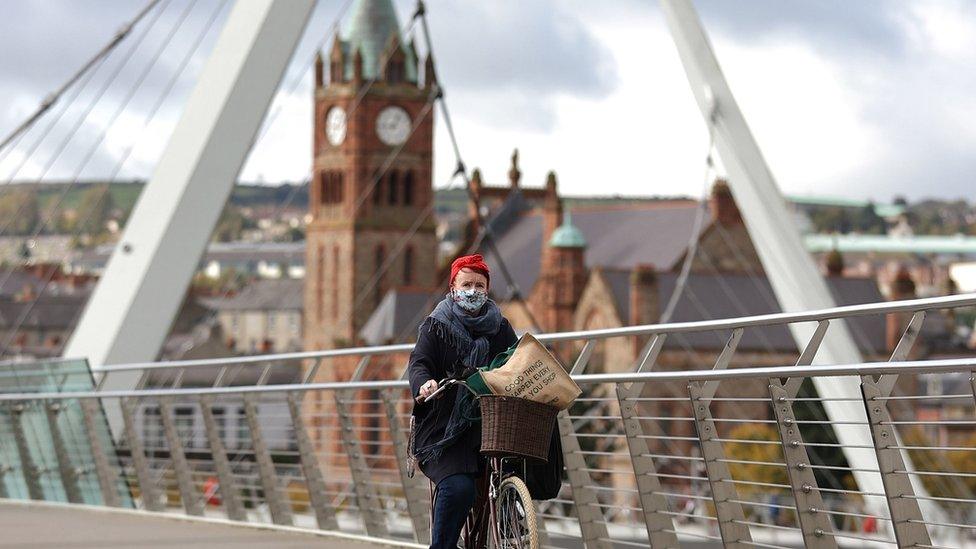
The Derry City and Strabane council area for a time in October had the UK's highest coronavirus infection rate
There has been a 70% reduction in the Covid-19 infection rate in the Derry and Strabane council area six weeks after restrictions were introduced.
At one point, the region had the UK's highest coronavirus infection rate.
The area was placed under stricter coronavirus restrictions on 1 October due to a significant spike in cases in the north west.
However, the Department of Health has now recorded a dramatic drop in positive cases.
At its peak on 14 October, the department recorded the coronavirus infection rate for the council area as 991.6 per 100,000 population.
As of 8 November the infection rate now stands at 279.4 per 100,000 - a reduction of nearly 72%.
Previously, medical officials said there was "strong evidence" that coronavirus restrictions imposed in the Derry City and Strabane District Council area were making a difference.
Pubs, cafes, restaurants and hotels in the area was placed under tighter restrictions two and half weeks before the rest of Northern Ireland was placed under similar restrictions.
The council area has recorded a total of 5,932 coronavirus cases since March.
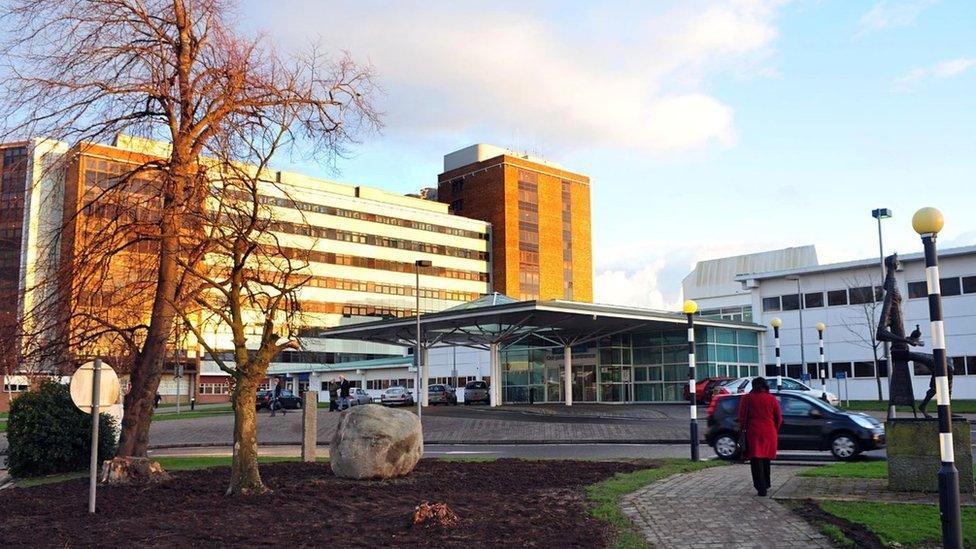
Medical professionals have voiced cautious optimism, but warned hospitals are still facing huge pressures
The number of Covid-19 patients needing hospital care in Northern Ireland's north west is also slowing down, health chiefs have said.
Speaking on Friday, the Western Trust's director of acute hospitals, Geraldine McKay said there is now a plateau in admissions to Londonderry's Altnagelvin Hospital.
"Critical care is still moving up and is under pressure at this moment in time so that is where we find ourselves, but patients coming into hospital with Covid seems to have plateaued," Ms McKay said.
But the number of patients needing intensive care remains high, she said.
"Critical care is still moving up and is under pressure at this moment in time so that is where we find ourselves, but patients coming into hospital with Covid seems to have plateaued," Ms McKay said.
The trust, she said, is now in a position "where we hope we have peaked" and "are now managing the very significant situation of dealing with outbreaks in the community".
The trust remains at "level red" of its Covid surge plan.
Donegal mink farms
Health Minister Robin Swann has urged the Irish government to introduce rules similar to the UK for visitors from Denmark.
The UK has imposed a ban on non-UK citizens coming from Denmark amid concerns over a new coronavirus strain that has spread from mink to humans.
UK citizens can return from Denmark - but will have to isolate along with all members of their household for 14 days.
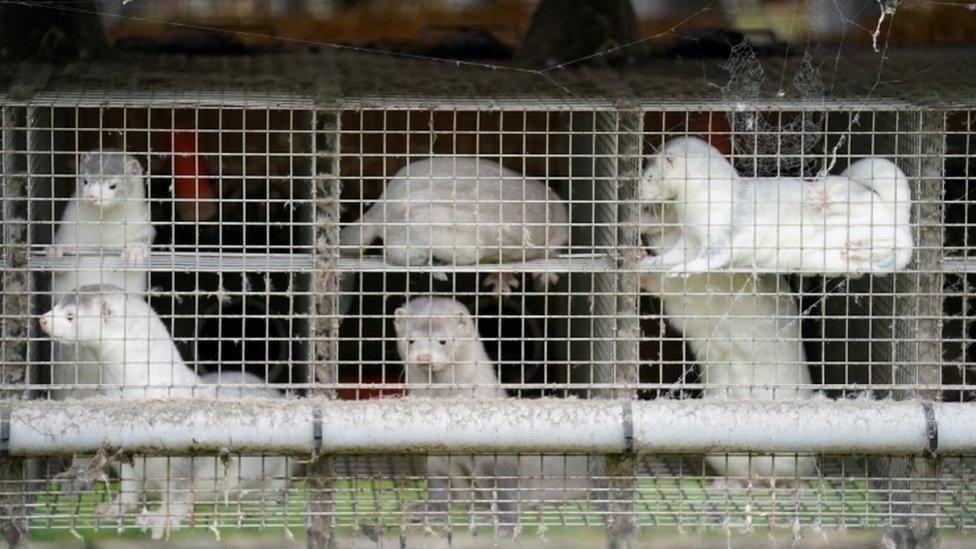
There are more than 1,000 mink farms in Denmark
There have been Covid-19 outbreaks on Danish mink farms, triggering a widespread cull of all mink in the country.
While there are no mink farms in NI, there are in the Republic of Ireland, including a number in Donegal, and they will be subject to Covid-19 testing.
In a letter to the Irish health minister, seen by BBC News NI, Mr Swann asked his counterpart to introduce similar measures to the UK "in the interests of the safety of all citizens on our island".
There are no direct flights between Northern Ireland and Denmark, so visitors and returning holidaymakers travel through Dublin airport or airports in Scotland, Wales or England.
- Published7 November 2020
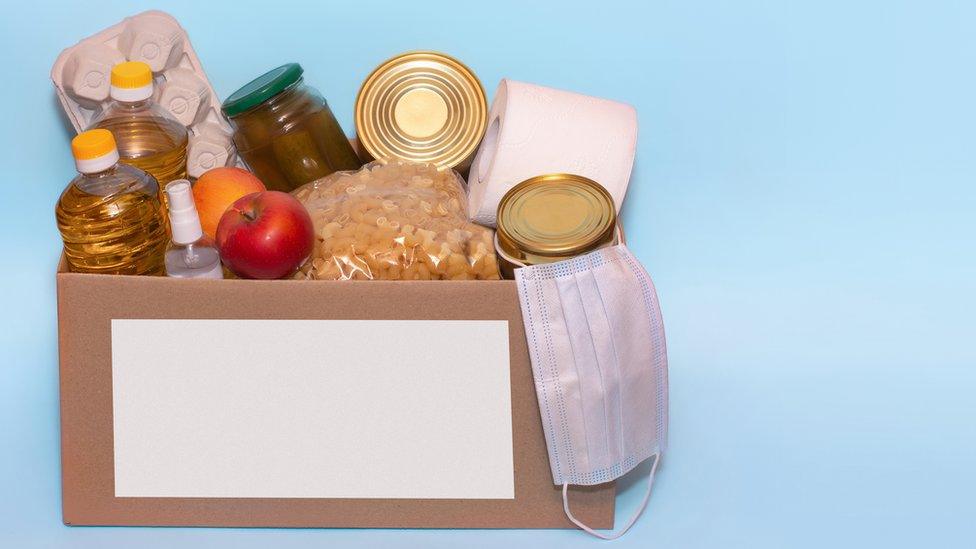
- Published9 November 2020
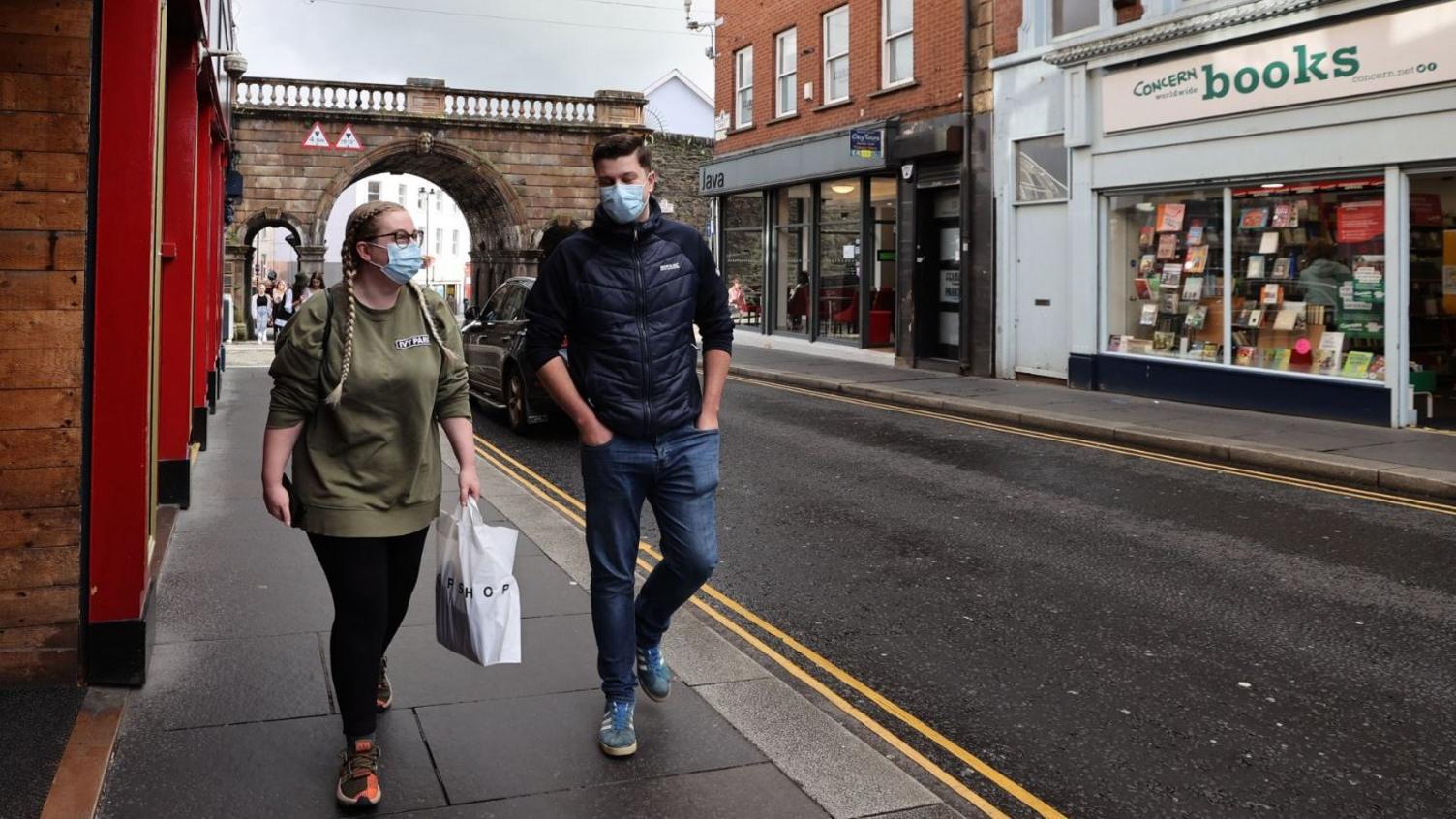
- Published6 November 2020

- Published7 November 2020
